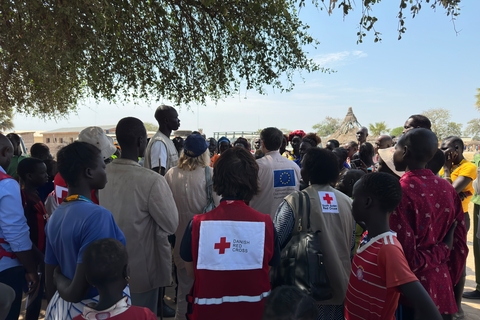
Danish Red Cross
Knowledge Hubs and Research Institutions
We collaborate with several knowledge hubs and research institutions to stay at the forefront of technical and humanitarian developments.
The research partnerships help support the evidence base on which our programmes are designed and implemented. They are crucial in enhancing the quality of programmes and promoting shared agendas and priorities. Many of these collaborations have resulted in studies, articles, and other publications, which can be found under Publications.
One good example is our collaboration with the Danish Institute for International Studies (DIIS). In 2020, we jointly published two articles on migration and returnees in West Africa and Ethiopia, thereby drawing attention to the dire needs resulting from climate change, conflict, and displacement.
We engage with academic institutions in Denmark (e.g. Aarhus University on health innovation and the University of Copenhagen on mental health research) and abroad. Since 2018, as part of the Partnering for Change (P4C) programme involving Novo Nordisk and the International Committee of the Red Cross, we have worked with The London School of Hygiene & Tropical Medicine on a research programme that aims to improve our understanding about the situation faced by people living with non-communicable diseases in humanitarian settings, and the help we can provide to them.
Specialised knowledge in Movement reference centres
The International Red Cross and Red Crescent Movement runs a range of reference centres around the world that provide specialised knowledge and services to Movement members on specific humanitarian and development issues.
We host the Red Cross Red Crescent Movement MHPSS Hub in Copenhagen. The Movement Hub helps us promote psychosocial wellbeing and plays a significant role in building our technical expertise in mental health and psychosocial support, which is a core component of our international activities.
We also host the Humanitarian Innovative Finance Hub (HIFHUB), an initiative that leverages financial instruments to address humanitarian challenges by developing a portfolio of investible projects, building organisational capacity, and fostering partnerships and sector-wide collaboration.
In addition, we have framework agreements with the Livelihoods Reference Centre, the Climate Change Reference Centre, and the 510 initiatives, which seek to improve humanitarian action through digital and data-based solutions.